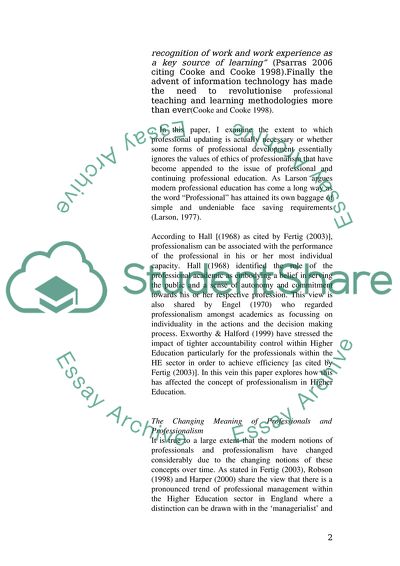Cite this document
(The Issues Raised For the Education of Professionals in The Light Of Essay, n.d.)
The Issues Raised For the Education of Professionals in The Light Of Essay. Retrieved from https://studentshare.org/professional/1712427-critically-examine-the-issues-raised-for-the-education-of-professionals-in-the-light-of-the-changing-nature-of-professional-practice
The Issues Raised For the Education of Professionals in The Light Of Essay. Retrieved from https://studentshare.org/professional/1712427-critically-examine-the-issues-raised-for-the-education-of-professionals-in-the-light-of-the-changing-nature-of-professional-practice
(The Issues Raised For the Education of Professionals in The Light Of Essay)
The Issues Raised For the Education of Professionals in The Light Of Essay. https://studentshare.org/professional/1712427-critically-examine-the-issues-raised-for-the-education-of-professionals-in-the-light-of-the-changing-nature-of-professional-practice.
The Issues Raised For the Education of Professionals in The Light Of Essay. https://studentshare.org/professional/1712427-critically-examine-the-issues-raised-for-the-education-of-professionals-in-the-light-of-the-changing-nature-of-professional-practice.
“The Issues Raised For the Education of Professionals in The Light Of Essay”, n.d. https://studentshare.org/professional/1712427-critically-examine-the-issues-raised-for-the-education-of-professionals-in-the-light-of-the-changing-nature-of-professional-practice.


